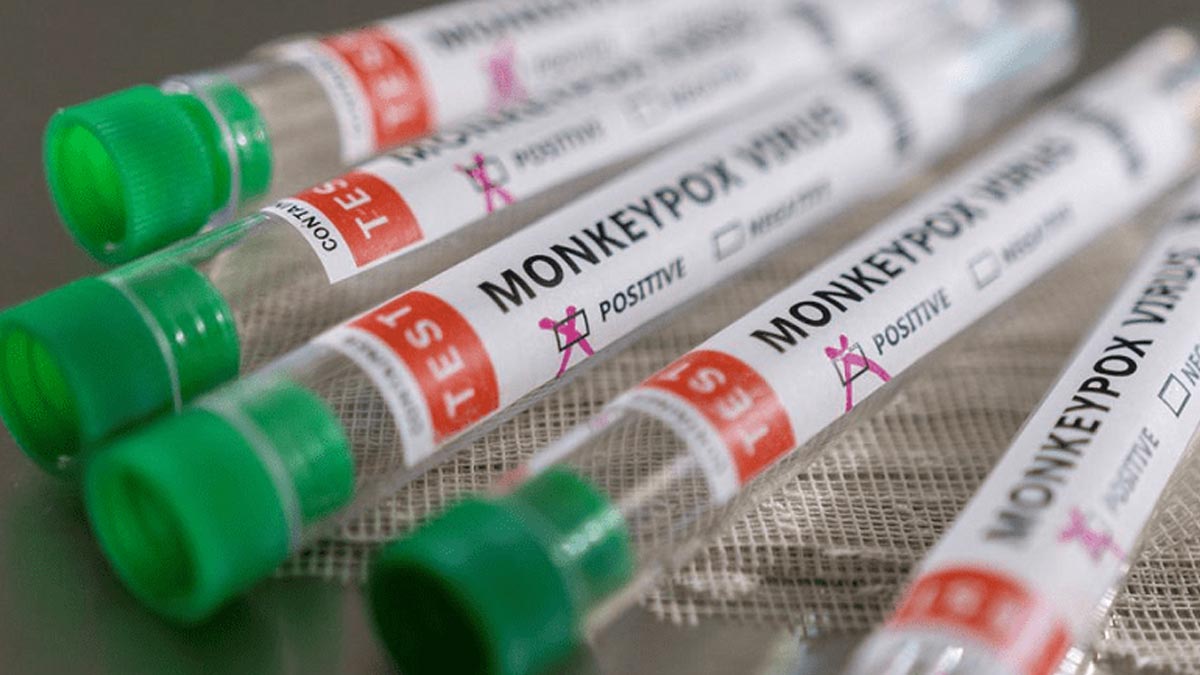Kerala has reported its second case of Mpox (formerly known as monkeypox), marking the third case of the viral infection in India this year. The state health department has confirmed that a 26-year-old man, who had recently returned from the UAE, tested positive for the virus in Ernakulam district. This latest development raises concerns about the potential spread of the disease within India, prompting health authorities to take swift action.
Details of the Latest Mpox Case in Kerala
The 26-year-old patient is currently receiving treatment at a private hospital in Ernakulam. Health officials have sent his samples to the National Institute of Virology (NIV) in Pune for genomic sequencing. The analysis is expected to determine whether the individual has been infected with the more dangerous Clade 1b strain or the older, less severe Clade IIb strain of the virus.
In recent weeks, there has been heightened vigilance after one of the previous three Mpox cases was confirmed to involve the more severe Clade 1b strain. This strain is known for its rapid transmission and more serious symptoms, which has added urgency to the efforts of health authorities.
The First Case of Clade 1b in India
On September 18, a 38-year-old man from Edavanna, Malappuram, was the first in India to test positive for Mpox with the Clade 1b strain. This discovery has pushed health officials in Kerala to reinforce preventive measures and monitor potential contacts of infected individuals more closely. The Clade 1b variant is particularly concerning due to its ability to spread faster and its more severe health outcomes.
As a result of these findings, the Indian health authorities have adopted a proactive approach to containing the spread of Mpox, especially after the detection of this more virulent strain. The state government is working in close collaboration with central agencies and international health bodies to manage the situation.
Also Read: Punjab Chief Minister Bhagwant Mann Diagnosed With Leptospirosis; Know All About It
Mpox in India: A Growing Concern
The first Mpox case in India this year was reported in Hisar, Haryana. A 26-year-old man from the region was found to have the Clade IIb strain, which is the less aggressive form of the virus. This case, along with the recent ones in Kerala, has prompted health authorities across India to increase their preparedness and introduce precautionary measures aimed at controlling the spread of the virus.
Mpox, caused by the Orthopoxvirus species, has two distinct clades—Clade 1, which includes subclades 1a and 1b, and Clade 2, which consists of subclades IIa and IIb. While Clade 2 tends to result in less severe symptoms, Clade 1, particularly subclade 1b, is more worrisome due to its higher transmission rate and potential for more serious health complications.
Preventive Measures and Guidelines
In response to the increasing cases of Mpox, the Central Government has issued a set of guidelines to all states and union territories. These guidelines focus on prevention, early detection, and quick isolation of suspected cases to prevent the virus from spreading further. The measures include monitoring international travelers, particularly those returning from Mpox-affected regions, and conducting widespread public awareness campaigns about the virus.
The World Health Organization (WHO) had earlier declared Mpox a public health emergency of international concern. This announcement, made in mid-August, underscored the global threat posed by the virus and encouraged countries worldwide to step up their preventive strategies.
Also Read: Black Nose Disease: Emerging Symptom Linked to Chikungunya Raises Alarm
Symptoms and Transmission of Mpox
Mpox is a viral illness that is primarily spread through close contact with infected individuals. It can also be transmitted by touching contaminated objects such as clothing or bedding. The most common symptoms include fever, a rash that progresses to skin lesions, muscle aches, swollen lymph nodes, and fatigue. The disease can also lead to more severe complications, particularly in individuals with weakened immune systems.
While Mpox is not as highly contagious as some other viral infections, its ability to spread through close physical contact or exposure to contaminated materials makes it a concern in environments where hygiene and contact tracing are challenging to maintain.
Bottomline
With three cases of Mpox now confirmed in India, including two in Kerala, health authorities are on high alert. The detection of the more virulent Clade 1b strain in one of the cases has heightened the need for stringent preventive measures. As India continues to monitor the situation, efforts to prevent the spread of Mpox will depend heavily on early detection, isolation, and public awareness. For now, authorities remain focused on containing the virus and preventing it from becoming a larger public health threat.
